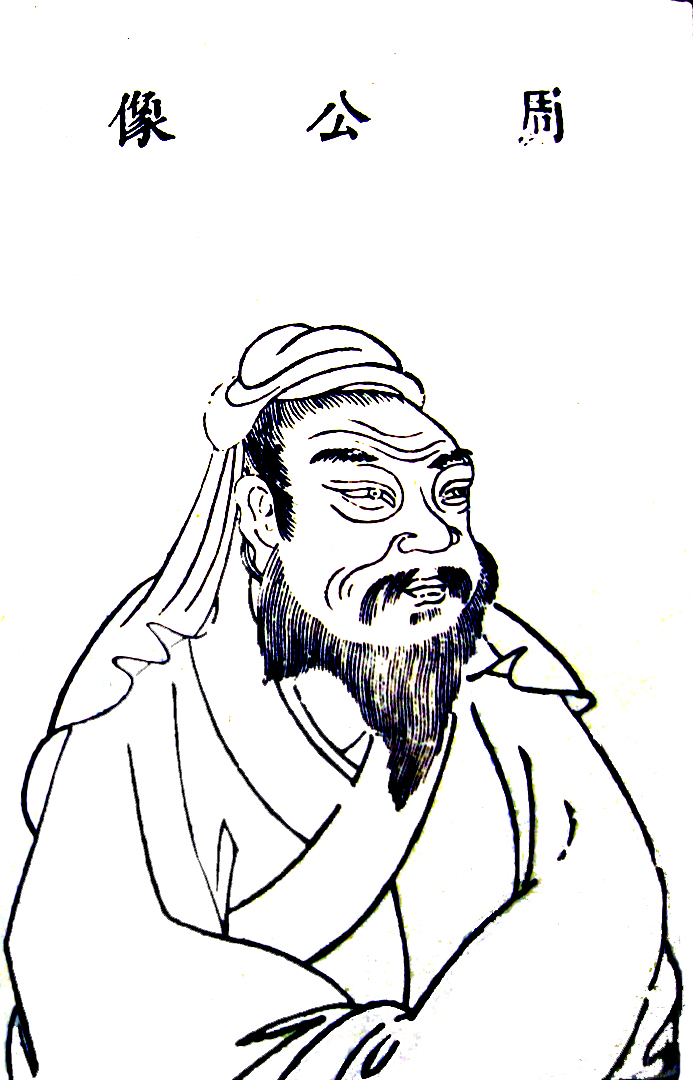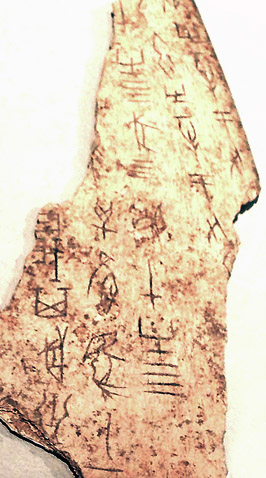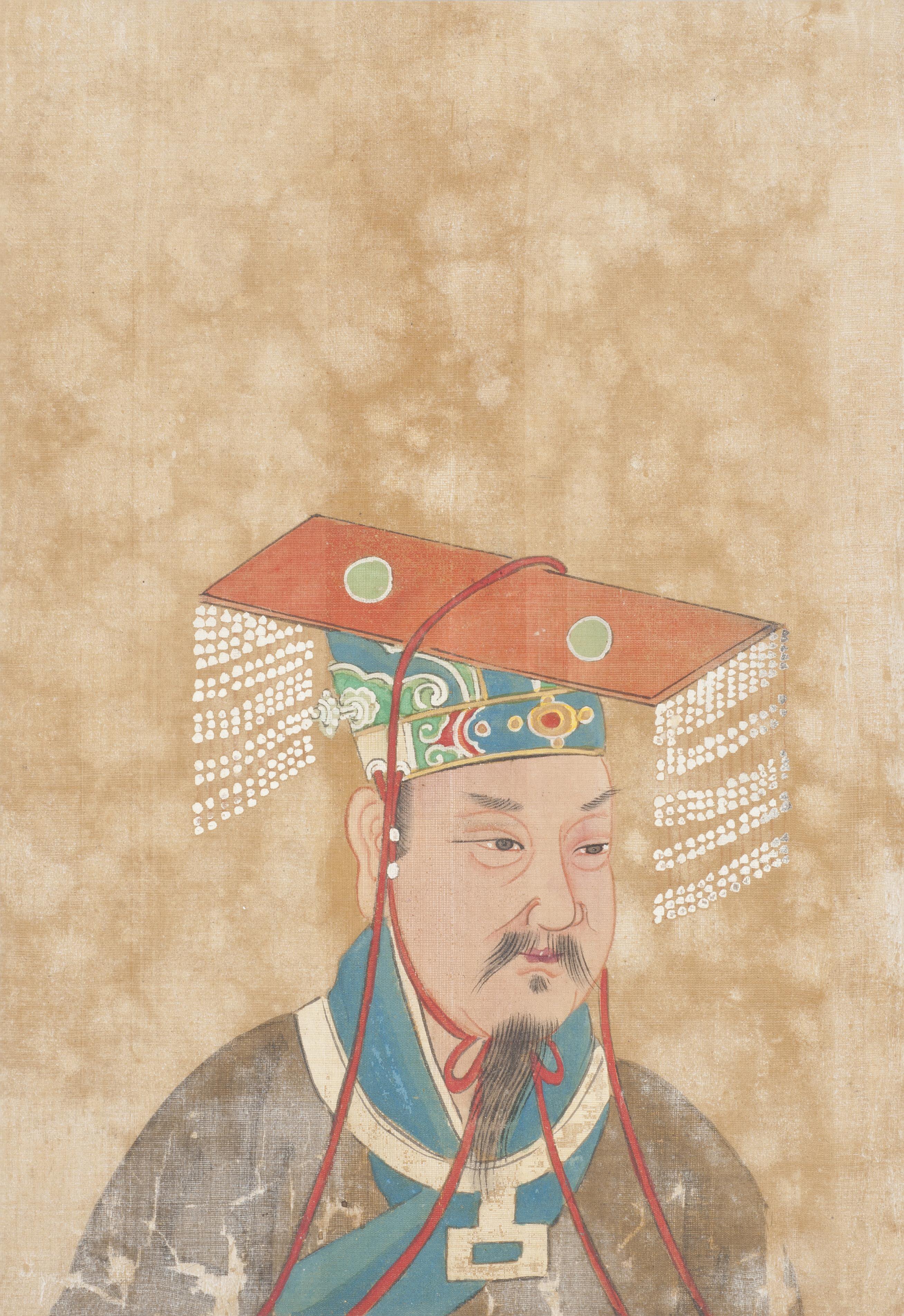|
Cai (state)
Cai (; Old Chinese: *s.r̥ˤat-s) was an ancient Chinese state established at the beginning of the Zhou dynasty, rising to prominence during the Spring and Autumn period, and destroyed early in the Warring States period. History Following his overthrow of the Shang king Zhou, King Wu of Zhou granted titles and territories to his younger brothers. The fifth brother, Cai Shu Du, was enfeoffed at present-day Shangcai (lit. "Upper Cai") in Henan. During the Three Guards Rebellion, he attempted to usurp the Duke of Zhou's position as regent to the young king and his defeat meant his deposition and exile. Du's son Ji Hu, however, proved a loyal and capable ambassador for Cheng and the Duke of Zhou, and they rewarded him with the reestablishment of his father's territory and title, which he was able to pass on to his son, Ji Huang. As the Chinese peerage developed, Cai was initially considered a county and then elevated to a march; it was never able, however, to become ... [...More Info...] [...Related Items...] OR: [Wikipedia] [Google] [Baidu] |
Chu (state)
Chu (, Old Chinese: ''*s-r̥aʔ'') was an Ancient Chinese states, ancient Chinese state during the Zhou dynasty. Their first ruler was King Wu of Chu in the early 8th century BC. Chu was located in the south of the Zhou heartland and lasted during the Spring and Autumn period. At the end of the Warring States period it was annexed by the Qin (state), Qin in 223 BC during the Qin's wars of unification. Also known as Jing () and Jingchu (), Chu included most of the present-day provinces of Hubei and Hunan, along with parts of Chongqing, Guizhou, Henan, Anhui, Jiangxi, Jiangsu, Zhejiang, and Shanghai. For more than 400 years, the Chu capital Danyang (Chu), Danyang was located at the junction of the Dan River (China), Dan and Xi Rivers near present-day Xichuan County, Henan, but later moved to Ying (Chu), Ying. The house of Chu originally bore the Chinese surname#Xing, ancestral temple surname Nai ( OC: /*rneːlʔ/) which was later written as Mi (surname), Mi ( OC: /*meʔ/). Th ... [...More Info...] [...Related Items...] OR: [Wikipedia] [Google] [Baidu] |
Zhou Dynasty
The Zhou dynasty ( ) was a royal dynasty of China that existed for 789 years from until 256 BC, the longest span of any dynasty in Chinese history. During the Western Zhou period (771 BC), the royal house, surnamed Ji, had military control over territories centered on the Wei River valley and North China Plain. Even as Zhou suzerainty became increasingly ceremonial over the following Eastern Zhou period (771–256 BC), the political system created by the Zhou royal house survived in some form for several additional centuries. A date of 1046 BC for the Zhou's establishment is supported by the Xia–Shang–Zhou Chronology Project and David Pankenier, but David Nivison and Edward L. Shaughnessy date the establishment to 1045 BC. The latter Eastern Zhou period is itself roughly subdivided into two parts. During the Spring and Autumn period (), power became increasingly decentralized as the authority of the royal house diminished. The Warring States ... [...More Info...] [...Related Items...] OR: [Wikipedia] [Google] [Baidu] |
Anhui
Anhui is an inland Provinces of China, province located in East China. Its provincial capital and largest city is Hefei. The province is located across the basins of the Yangtze and Huai rivers, bordering Jiangsu and Zhejiang to the east, Jiangxi to the south, Hubei and Henan to the west, and Shandong to the north. With a population of 61 million, Anhui is the 9th most populous province in China. It is the 22nd largest Chinese province based on area, and the 12th most densely populated region of all 34 Chinese provincial regions. Anhui's population is mostly composed of Han Chinese. Languages spoken within the province include Lower Yangtze Mandarin, Wu Chinese, Wu, Huizhou Chinese, Hui, Gan Chinese, Gan and small portion of Central Plains Mandarin. The name "Anhui" derives from the names of two cities: Anqing and Huizhou, Anhui, Huizhou (now Huangshan City). The abbreviation for Anhui is , corresponding to the historical , and is also used to refer to the Wan River and Mount Ti ... [...More Info...] [...Related Items...] OR: [Wikipedia] [Google] [Baidu] |
Xiacai
Zhoulai () was a small state of the Spring and Autumn period that ruled a crucial part of the middle Huai River valley. Its capital, known by the same name, was located in modern-day Fengtai County in Huainan. Due to its strategic location, Zhoulai controlled the most important route from Hubei to the Yellow Sea. This made it a target of the expansionist state of Chu, which subjugated Zhoulai in the late 7th century BC in order to gain access to the east. While nominally allowed to maintain autonomy under its own dynasty, Zhoulai effectively became a puppet state under Chu military occupation and civil administration. It survived in this condition until 529 BC, when its capital city was conquered by Wu and its ruling family was formally deposed. History As very little is recorded of Zhoulai in contemporary historical records, both its foundation date as well as its ruling family are unknown. The whole Huai River valley, including the later location of Zhoulai, were originally o ... [...More Info...] [...Related Items...] OR: [Wikipedia] [Google] [Baidu] |
March (territory)
In Middle Ages, medieval Europe, a march or mark was, in broad terms, any kind of borderland, as opposed to a state's "heartland". More specifically, a march was a border between realms or a neutral buffer zone under joint control of two states in which different laws might apply. In both of these senses, marches served a political purpose, such as providing warning of Invasion, military incursions or regulating cross-border trade. Marches gave rise to the titles marquess (masculine) or marchioness (feminine). Etymology The word "march" derives ultimately from a Proto-Indo-European root *''merg-'', meaning "edge, boundary". The root *''merg-'' produced Latin ''margo'' ("margin"), Old Irish ''mruig'' ("borderland"), Welsh language, Welsh ''bro'' ("region, border, valley") and Persian language, Persian and Armenian language, Armenian ''Marz (country subdivision), marz'' ("borderland"). The Proto-Germanic ''*marko'' gave rise to the Old English language, Old English word ''mearc'' a ... [...More Info...] [...Related Items...] OR: [Wikipedia] [Google] [Baidu] |
Ji Huang
Huang, Earl of Cai (), born Ji Huang (), was a noble from the Zhou dynasty of the third ruler of the ancient Chinese state of Cai. Huang was the only known son of Zhong Hu of Cai and a second cousin of Kings Cheng and Kang of Zhou. His son inherited his land as Marquis Gōng of Cai, receiving the higher title, '' hou'' rather than ''bo''. See also *Shiji The ''Shiji'', also known as ''Records of the Grand Historian'' or ''The Grand Scribe's Records'', is a Chinese historical text that is the first of the Twenty-Four Histories of imperial China. It was written during the late 2nd and early 1st cen ... External links *http://ctext.org/dictionary.pl?if=en&char=%E8%94%A1%E4%BC%AF%E8%8D%92 *http://www.chinaknowledge.de/History/Zhou/rulers-cai.html {{DEFAULTSORT:Huang of Cai 11th century BC in China Zhou dynasty nobility Monarchs of Cai (state) 11th-century BC Chinese monarchs ... [...More Info...] [...Related Items...] OR: [Wikipedia] [Google] [Baidu] |
Zhong Hu Of Cai
Cai Zhong Hu ( Chinese: , lit. "Hu, Elder of Cai"), born Ji Hu (), was the only known son of Ji Du, the first lord of Cai. Ji Du was removed from his office after participating in the Rebellion of the Three Guards against the regency of the Duke of Zhou. However, his son made an effort to get his manners straight and be kind to peopleShiji, book 35, "蔡叔度既遷而死。其子曰胡,胡乃改行,率德馴善。周公聞之,而舉胡以為魯卿士,魯國治。於是周公言於成王,復封胡於蔡,以奉蔡叔之祀,是為蔡仲。" and was sent by the Duke of Zhou Dan, Duke Wen of Zhou, commonly known as the Duke of Zhou, was a member of the royal family of the early Zhou dynasty who played a major role in consolidating the kingdom established by his elder brother King Wu. He was renowned for acting as ... to Lu as an ambassador. Following this, King Cheng restored his father's fief to him and his son inherited it after him. References [...More Info...] [...Related Items...] OR: [Wikipedia] [Google] [Baidu] |
Duke Of Zhou
Dan, Duke Wen of Zhou, commonly known as the Duke of Zhou, was a member of the royal family of the early Zhou dynasty who played a major role in consolidating the kingdom established by his elder brother King Wu. He was renowned for acting as a capable and loyal regent for his young nephew King Cheng, and for successfully suppressing the Rebellion of the Three Guards and establishing firm rule of the Zhou dynasty over eastern China. He is also a Chinese culture hero, with the authorship of the ''I Ching'' and the ''Classic of Poetry'' having traditionally been attributed to him, as well as the establishment of the '' Rites of Zhou''. Life His personal name was Dan (). He was the fourth son of King Wen of Zhou and Queen Tai Si. His eldest brother Bo Yikao predeceased their father (supposedly a victim of cannibalism); the second-eldest defeated the Shang dynasty at the Battle of Muye around 1046 BC, ascending the throne as King Wu. King Wu distributed many fiefs to his r ... [...More Info...] [...Related Items...] OR: [Wikipedia] [Google] [Baidu] |
Three Guards Rebellion
The Rebellion of the Three Guards (), or less commonly the Wu Geng Rebellion (), was a civil war, instigated by an alliance of discontent Zhou princes, Shang loyalists, vassal states and other non-Zhou peoples against the Western Zhou government under the Duke of Zhou's regency in late 11th century BC. After the fall of the Shang dynasty, King Wu of Zhou had appointed his younger brothers Guanshu, Caishu and Huoshu as the "Three Guards" of the East to secure the newly conquered Shang lands. After his death and his young son King Cheng's coronation, King Wu's brother Dan, the Duke of Zhou, declared himself regent and took over the court. This aroused the anger of the Three Guards who suspected Dan of usurpation and believed that they should serve as regents. The Three Guards allied with many separatist eastern nobles, Shang loyalists under Prince Wu Geng, and several Dongyi and Huaiyi () states in rebellion. The Duke of Zhou then launched a second "eastern campaign" to put dow ... [...More Info...] [...Related Items...] OR: [Wikipedia] [Google] [Baidu] |
Henan
Henan; alternatively Honan is a province in Central China. Henan is home to many heritage sites, including Yinxu, the ruins of the final capital of the Shang dynasty () and the Shaolin Temple. Four of the historical capitals of China, Luoyang, Anyang, Kaifeng and Zhengzhou, are in Henan. While the province's name means 'south of the river', approximately a quarter of the province lies north of the Yellow River. With an area of , Henan covers a large part of the fertile and densely populated North China Plain. Its neighboring provinces are Shaanxi, Shanxi, Hebei, Shandong, Anhui, and Hubei. Henan is China's third-most populous province and the most populous among inland provinces, with a population of over 99 million as of 2020. It is also the world's seventh-most populous administrative division; if it were a country by itself, Henan would be the 17th-most populous in the world, behind Egypt and Vietnam. People from Henan often suffer from regional discrimination ... [...More Info...] [...Related Items...] OR: [Wikipedia] [Google] [Baidu] |
King Wu Of Zhou
King Wu of Zhou (; died ), personal name Ji Fa, was the founding king of the Chinese Zhou dynasty. The chronology of his reign is disputed but is generally thought to have begun around 1046 BCE and ended with his death three years later. King Wu was the second son of Ji Chang (posthumously King Wen) and Tai Si. In most accounts, his older brother Bo Yikao was said to have predeceased his father, typically at the hands of King Zhou of Shang, the last king of the Shang dynasty; in the '' Book of Rites'', however, it is assumed that his inheritance represented an older tradition among the Zhou of passing over the eldest son. (Fa's grandfather Jili had likewise inherited Zhou despite two older brothers.) Upon his succession, Fa worked with his father-in-law Jiang Ziya to accomplish an unfinished task: overthrowing the Shang dynasty. During the ninth year of his reign, Fa marched down the Yellow River to the Mengjin ford and met with more than 800 dukes. He constructed an ... [...More Info...] [...Related Items...] OR: [Wikipedia] [Google] [Baidu] |
King Zhou Of Shang
King Zhou (; ) was the pejorative posthumous name given to Di Xin of Shang () or Shou, King of Shang (), the last king of the Shang dynasty of ancient China. He is also called Zhou Xin (). In Chinese, his name Zhòu ( 紂) also refers to a horse crupper, the part of a saddle or harness that is most likely to be soiled by the horse. It is not to be confused with the name of the succeeding dynasty, which has a different character and pronunciation (). In later times, the story of King Zhou became a cautionary tale on what could befall a kingdom if its ruler gave into corruption and moral depravity. Names Di Xin is the official title given by the Shang dynasty imperial house. Di Xin was born with the family name Zi, lineage name Yin, and the given name Shou. He was called Shou, King of Shang by the kingdom of Zhou when he was alive. After his death, he was given a derogatory posthumous name, King Zhou of Shang () by the succeeding Zhou dynasty, with Zhou () meaning "horse cr ... [...More Info...] [...Related Items...] OR: [Wikipedia] [Google] [Baidu] |







